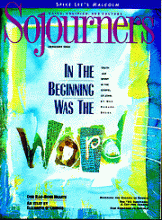Perhaps because I have visited the homes of "welfare moms"; or maybe because I have journeyed to juvenile court with poor youth and listened to over-worked judges, lawyers, and police officers; possibly because I have pulled my own children away from windows and walls when bullets were flying--for whatever reason, I couldn't stop reading Alex Kotlowitz's book, There Are No Children Here. "Amen" and "yes sir" were my verbal responses while tears of anger and frustration, love and joy reflected my emotional responses to this book.
There Are No Children Here addresses the subject of urban poverty; Kotlowitz introduces its effects by way of the lives of a family caught in that poverty. Through the eyes of Lafeyette and Pharaoh Rivers and their mom LaJoe, Kotlowitz shares the dreams, fears, and realities of a family in the Henry Horner Projects of Chicago. The urban family experience not only includes the needs of getting food, clothing, education, and shelter, but also the need to avoid as much as possible the gang violence, poverty, poor housing, and crime that plague the city.
Without excessive statistical, social, or political analyses, Kotlowitz holds up a mirror to the complexity of being a victim of our society. His review of the effects of economic, racial, and sexual oppression details the realities of life for African-American families living in our cities' ghettos; it paints a picture of life lived in hope without any resources or reserves.
Read the Full Article

